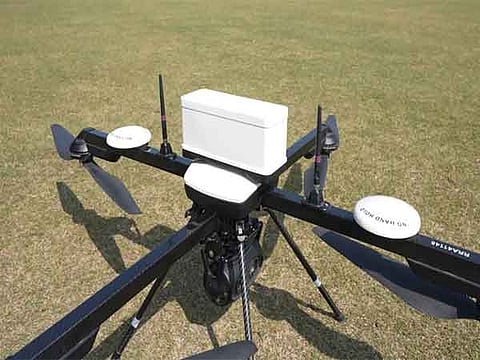

CHANDIGARH: In a significant move amid escalating tensions between India and Pakistan, Punjab Chief Minister Bhagwant Mann on Thursday announced that the state government would procure its own anti-drone systems for surveillance and defence along the international border.
After a cabinet meeting, Mann said nine anti-drone systems would be deployed across the 532-km-long border stretch from Pathankot to Abohar.
“We will buy our own anti-drone system as we have six border districts. Anti-drone systems are designed to detect, track, and neutralise unauthorised drones. We are already in the process of purchasing such systems. The BSF has already got some anti-drone systems,” he said. However, he did not disclose the amount sanctioned for the procurement.
Mann further stated that cabinet ministers from the border districts would remain stationed in their respective areas to ensure there was no hoarding or black-marketing of essential commodities.
“They will ensure that no hoarding or black-marketing takes place. I want to tell people that there is no shortage of LPG, petrol and diesel in the state. If anyone is black-marketing, you can complain to the deputy commissioner of your area,” he said.
Ministers from the border districts, including Kuldeep Singh Dhaliwal, Lal Chand Kataruchak and Laljit Bhullar, would stay put along with other cabinet colleagues to monitor and review the situation.
“We are in regular touch with our DCs in the six border districts. The posts of Tehsildars and Kanungos in all border districts have been filled. They need to be in regular touch with the armed forces,” he added, reiterating that the situation was under control and there was no need for the public to panic.
The Punjab cabinet also reviewed the preparedness of emergency services in the state, including hospitals and fire stations, and took stock of the available ration and essential supplies.
In another key decision, the state government announced the implementation of the Old Pension Scheme (OPS) for employees who joined service in or before 2014.
Expanding the scope of the Farishtey Scheme, the cabinet approved the inclusion of war and terror-affected victims under its ambit.
A spokesperson from the Chief Minister’s Office said, “In order to provide immediate hassle-free medical treatment to victims of war and terrorist activities in government or empanelled private hospitals in the state, and to encourage the general public to bring the victims to the nearest government or empanelled hospitals, coverage under the Farishtey Scheme 2024 has been expanded.”
The inclusion aims to ensure comprehensive support and relief to individuals affected by such extraordinary hardships.
Meanwhile, Local Government Minister Dr Ravjot Singh issued strict orders cancelling all leaves of Fire Brigade personnel and directed their 24x7 deployment at sensitive locations across Punjab.
He said, “War is a major emergency and the Fire Brigade plays a crucial role in such situations.” He instructed officials to conduct mock drills, ensure all equipment is functional, and maintain constant coordination with Army authorities for a swift response. Officials were also asked to stay on high alert with their phones active at all times.